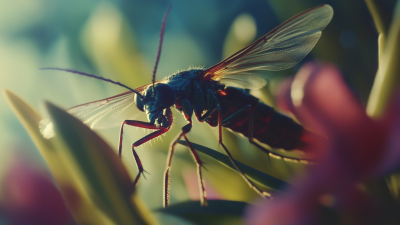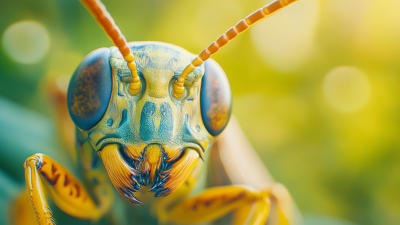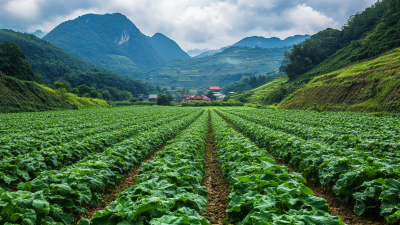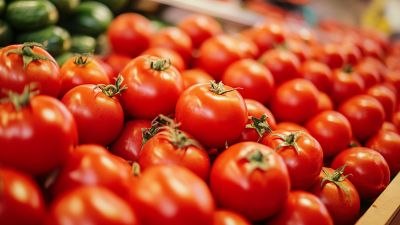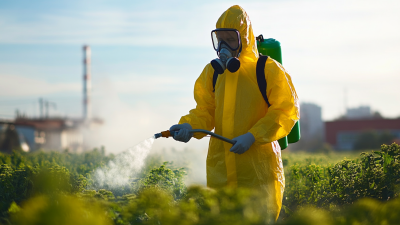 0551-68500918
0551-68500918 





The Insecticide Marketis witnessing unprecedented growth, driven by advancements in technology and an increasing demand for sustainable agricultural practices. According to a recent report by MarketsandMarkets, the Global Insecticide market size is projected to reachUSD 18.74 billion by 2025, growing at a CAGR of 4.3% from 2020 to 2025. As countries strive to enhance food security and reduce crop losses, innovative solutions are imperative. Innovation Meiland (Hefei) Co., LTD. stands at the forefront of this evolution, dedicated to the research and development of new pesticide products, formulations, and processes. Based in Hefei, China, Meiland's commitment to innovation positions it as a key player in the global market, contributing to the unmatched quality of Chinese manufacturing in the insecticide sector.
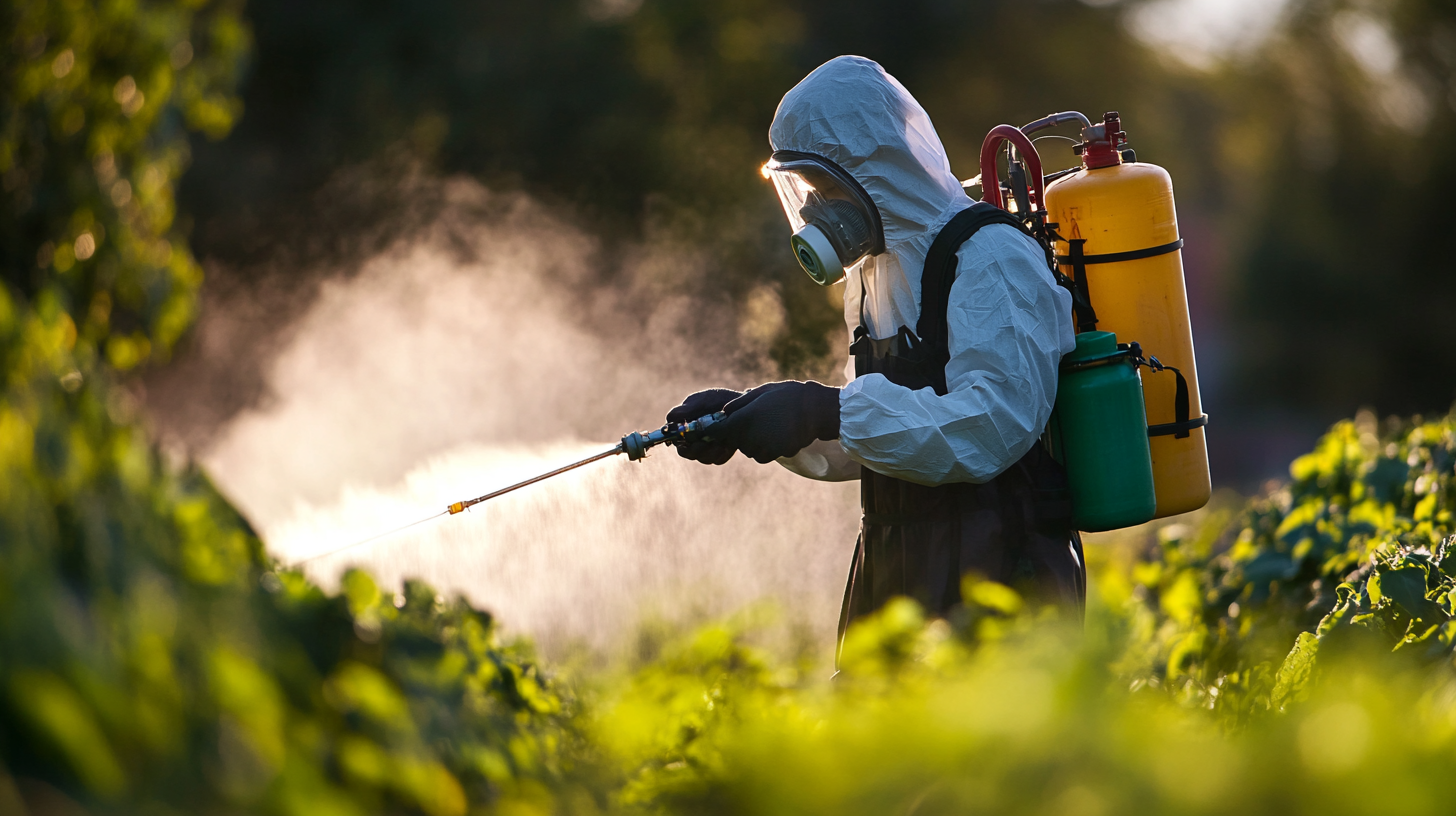
In recent years, Chinese manufacturing has emerged as a powerhouse in the global insecticide market, characterized by an unmatched quality that sets its products apart. One of the key factors driving this excellence is the massive investment in research and development. Chinese companies are increasingly focusing on innovative formulations and technologies that not only enhance efficacy but also minimize environmental impact. This commitment to R&D has positioned them at the forefront of sustainable pest management solutions, making Chinese insecticides more appealing to a global audience.
Another critical factor is the robust supply chain infrastructure that China possesses. With well-established logistics and a network of suppliers, manufacturers can efficiently source high-quality raw materials and distribute finished products worldwide. This efficiency not only reduces production costs but also ensures that products are delivered to market promptly, meeting the growing demand of farmers and agricultural businesses. As a result, Chinese insecticides are not only competitive in price but also deliver superior performance, further solidifying their reputation in the global arena.
The advancements in technology and innovation have propelled China to the forefront of the global insecticide market. With the implementation of cutting-edge practices in agricultural industrial structures, particularly in regions like Guangdong, the country has seen significant strides towards a green transformation. This emphasis on sustainability is echoed in comprehensive plans aimed at achieving food security while fostering scientific breakthroughs. The role of innovative technologies—ranging from artificial intelligence to the Internet of Things—has been pivotal in enhancing production efficiency and environmental stewardship.
Innovation Meiland (Hefei) Co., LTD. exemplifies this shift towards modern agricultural solutions by focusing on the research and development of new pesticide products and formulations. By embracing the latest advancements, companies like Meiland are not only improving pest management practices but are also aligning with the global movement towards eco-friendly agricultural methods. As Chinese manufacturers continue to invest in research and development, the result is a more robust and sustainable insecticide production that meets both domestic needs and international standards, reinforcing China's leadership in the agricultural sector.
China's insecticide market has been gaining significant attention in the global agricultural sector. In comparison to its competitors, Chinese insecticides are lauded for their unmatched quality and competitive pricing, making them a preferred choice for many farmers worldwide. The rapid development of this market reflects China's robust manufacturing capabilities, which allow for continuous innovation and adaptation to global agricultural needs.
Tips: When choosing insecticides, consider the active ingredients and their effectiveness against target pests. Moreover, evaluate the environmental impact and safety measures associated with their use. By selecting products that align with both efficacy and sustainability, farmers can enhance their productivity while safeguarding biodiversity.
Current market forecasts indicate that, despite emerging competitors like India's Agricultural Chemicals sector, China maintains a strong foothold in the insecticide market. While India is focusing on its development and poses potential competitive risks, short-term implications for China's industry are minimal. The demand for high-quality, reliable insecticides continues to surge globally, positioning Chinese manufacturers favorably to meet these needs.
Tips: Stay updated on global market trends by following industry reports and insights. Engaging with local agricultural extension services can provide valuable information on the best practices for integrating new products into farming operations.
| Category | Chinese Insecticide | Global Competitor A | Global Competitor B | Global Competitor C |
|---|---|---|---|---|
| Active Ingredient | Ingredient X | Ingredient Y | Ingredient Z | Ingredient W |
| Efficacy (%) | 95 | 90 | 85 | 88 |
| Market Share (%) | 40 | 25 | 20 | 15 |
| Price per Liter ($) | 30 | 50 | 55 | 60 |
| Residual Effect (Days) | 30 | 25 | 20 | 22 |
As we look ahead to 2025, the insecticide industry is poised for transformative changes driven by innovative trends and growing market demands. The global emphasis on sustainability and resilience within the chemical sector is reshaping agricultural practices, paving the way for more environmentally friendly insecticides. This shift is crucial as the agricultural landscape grapples with increasing challenges, such as pest resistance, which threatens crop yields and profitability.
The Cypermethrin insecticide market itself illustrates this trend, projected to grow significantly over the next several years. With an expected valuation of $2.69 billion in 2025, there is a clear indication that investment in advanced formulations and research will be critical to meet the evolving needs of farmers worldwide. Concurrently, the Indian pesticide market showcases robust growth, underpinned by a surge in demand for effective solutions amidst rising agricultural challenges. These developments underscore how market trends are not merely shaping the present but are setting the stage for a resilient and high-quality future in global insecticide manufacturing.
The global insecticide market has been significantly influenced by the robust sustainability practices adopted in Chinese manufacturing. Companies are increasingly aware of their environmental responsibilities, leading to the integration of eco-friendly processes and materials. Innovative technologies are being employed to minimize chemical waste and reduce energy consumption during production. By utilizing renewable resources and improving process efficiency, Chinese manufacturers are setting a new standard for sustainability in the insecticide sector.
Moreover, the emphasis on biopesticides represents a pivotal shift towards greener alternatives. These products are derived from natural sources and are designed to target specific pests while minimizing harm to beneficial insects and the ecosystem. Chinese manufacturers are at the forefront of this transition, investing in research and development to create effective and sustainable pest management solutions. This commitment not only addresses environmental concerns but also caters to an increasingly aware consumer base that prioritizes sustainability when making purchasing decisions.
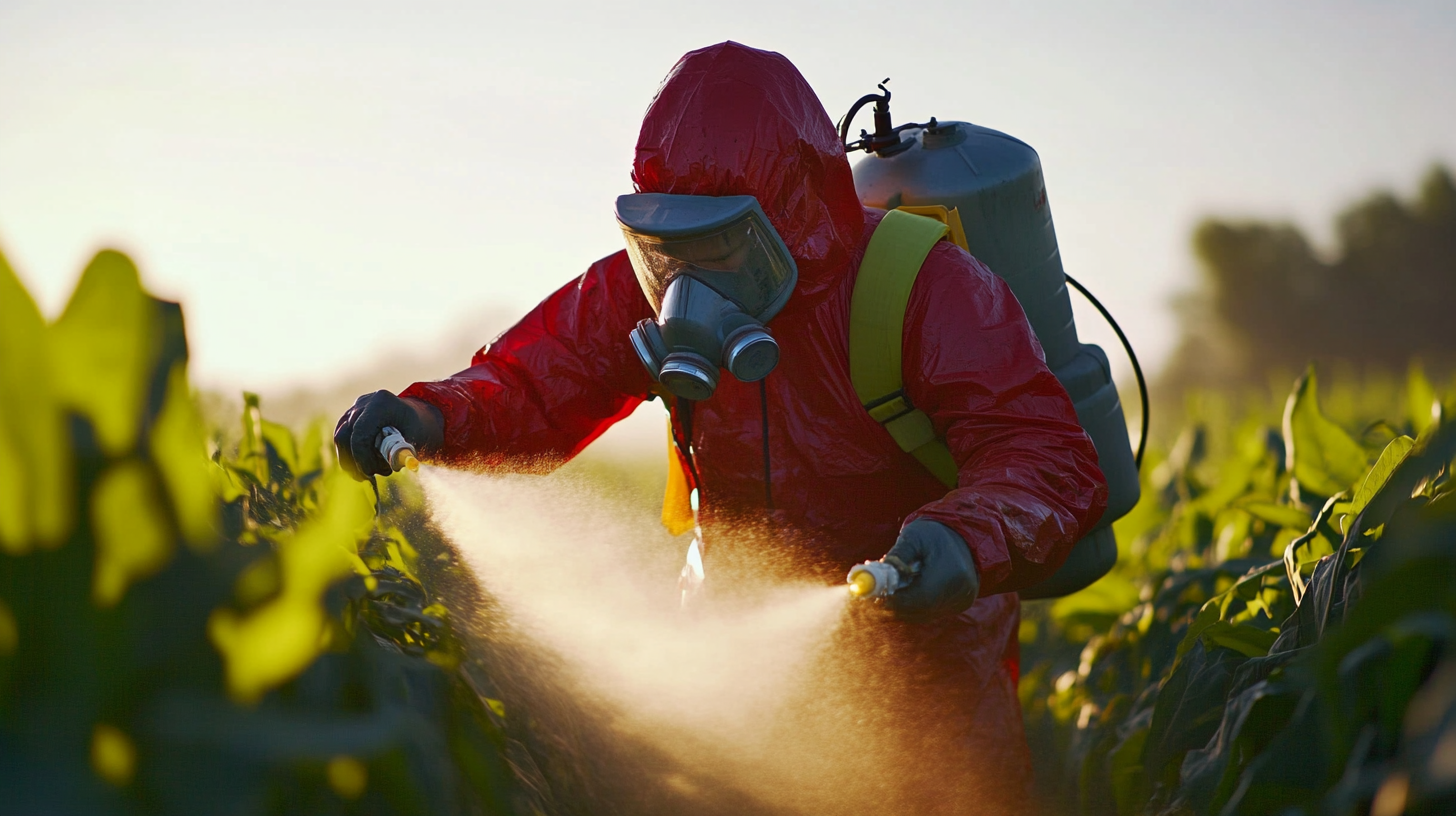
China's position in the global insecticide market presents both significant challenges and lucrative opportunities. On one hand, the competitive landscape is marked by stringent regulations and an increasing emphasis on environmentally friendly products. Manufacturers must innovate not just to comply with these regulations but also to meet the growing consumer demand for sustainable solutions. This requires continuous investment in research and development—which is precisely where companies like Innovation Meiland (Hefei) Co., LTD. excel. Our commitment to developing new pesticide products, formulations, and processes positions us to adapt effectively to these market changes.
Moreover, as global agricultural practices evolve, the need for effective pest management solutions becomes even more critical. This creates a fertile ground for China’s robust manufacturing capabilities to shine. By prioritizing quality and innovation, Chinese manufacturers have the potential to dominate the international insecticide market. At Meiland, we leverage our location in Hefei, a hub for research and development, to ensure our products are not only innovative but also aligned with global standards. As we continue to navigate these challenges, our focus remains on embracing opportunities that drive industry advancement, ultimately reinforcing China's status in the global market.
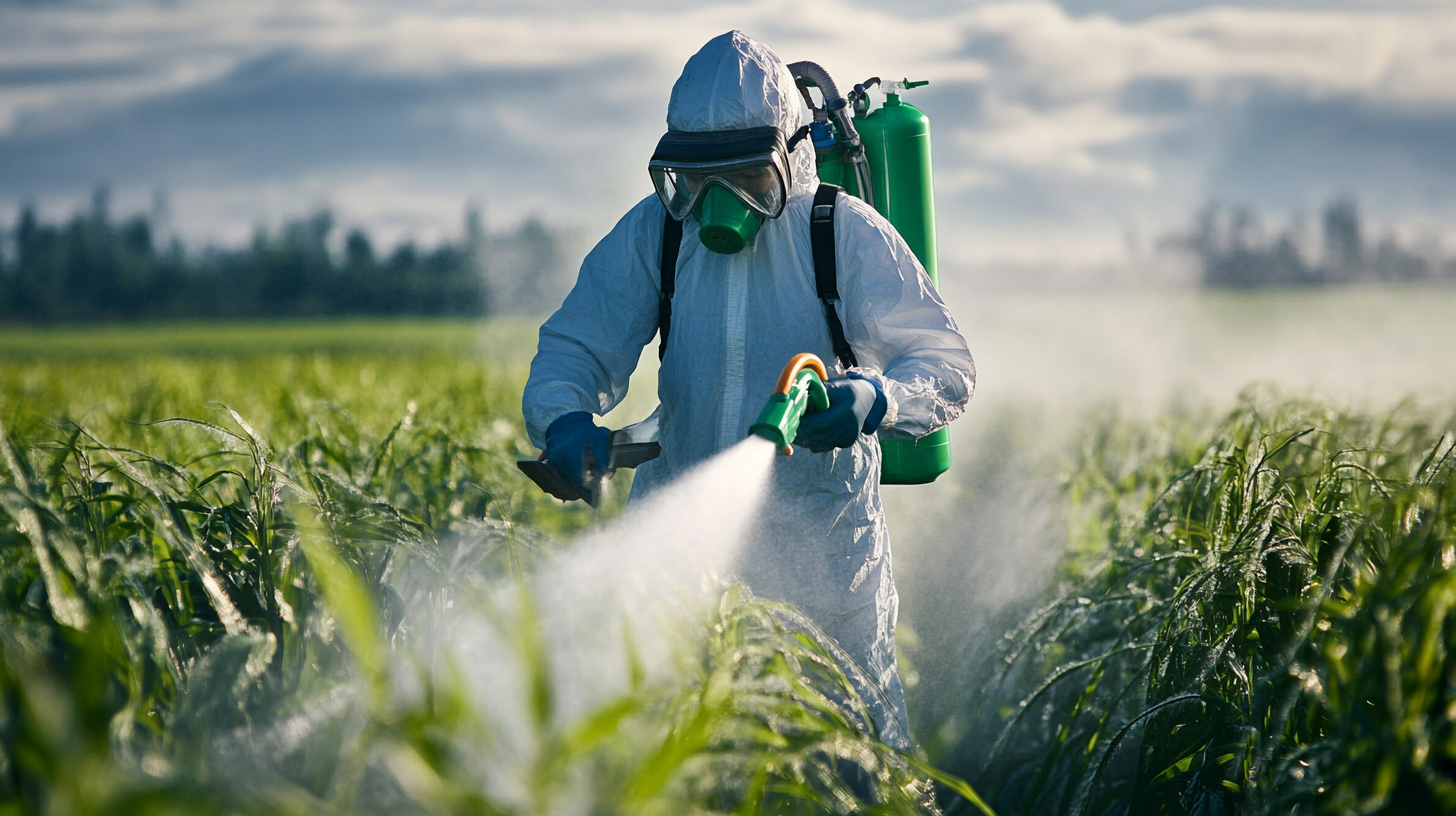
: Advancements in technology and innovation, particularly in agricultural industrial structures, have propelled China to a leading position in the global insecticide market.
Companies are integrating eco-friendly processes and materials, utilizing innovative technologies to minimize chemical waste and reduce energy consumption during production.
Innovation Meiland focuses on the research and development of new pesticide products and formulations, aligning with eco-friendly agricultural methods and enhancing pest management practices.
Biopesticides, which are derived from natural sources and target specific pests while minimizing harm to beneficial insects, are gaining popularity as sustainable alternatives in pest management.
An increasingly aware consumer base prioritizes sustainability when making purchasing decisions, driving demand for eco-friendly products.
Investment in research and development leads to more robust and sustainable insecticide production, which meets both domestic needs and international standards.
Technologies such as artificial intelligence and the Internet of Things are mentioned as pivotal in enhancing production efficiency and environmental stewardship.
The green transformation in Guangdong involves implementing cutting-edge agricultural practices aimed at achieving food security and fostering scientific breakthroughs.
By investing in research and development to create effective and sustainable pest management solutions, Chinese manufacturers are leading the transition towards eco-friendly alternatives in the insecticide sector.
The goals include minimizing environmental impact, reducing energy consumption, and meeting the growing demand for eco-friendly agricultural products.
